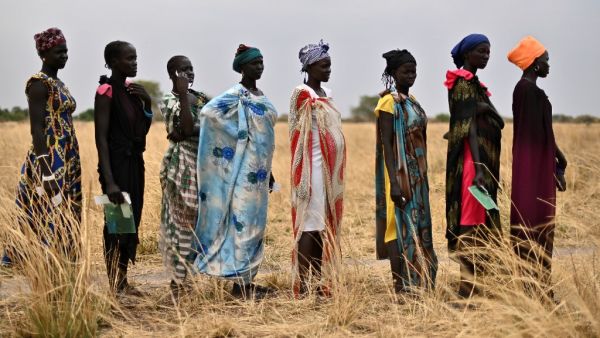Women in Sudan are still suffering, despite the great role they played in society and during the country's December revolution that brought down the "Islamists' regime".
Today, their main challenge is to get rid of the unfair Personal Status Law which they've been trying to abolish or amend.
On International Women's Day, activists and civil society organizations gathered outside the Ministry of Justice in Khartoum to protest against the law, calling for repealing articles on alimony, child custody, marriage age, and travel permission.
Sudanese activist Manal Matar told Asharq Al-Awsat that provisions of the Personal Status Law encourage men to oppress women, especially Article 24 which gives a woman's guardian power over her marriage dissolution and Article 40 which has set the age of 10 as the legal age of marriage.
“This is why Sudan has registered the highest number of female child marriage in the world," she noted, stressing the need to annual the first paragraph of Article 119 which deprives women of the right to travel with their children without their fathers' consent.
Women have led the "Be Strong" social media campaign with which the society has strongly interacted, but to no avail, yet, over amending the law.
Ikhlas Kabashi believes that the Sudanese Personal Status Law pushes women to despair and affects Sudanese families in which men are dominant.
“I hope efforts of activists defending women’s rights will be fruitful after this tiring journey of struggle," she added.
The United Nations describes the conditions of women in the world as changing "painfully slow", although certain countries have made some progress.
This article has been adapted from its original source.








